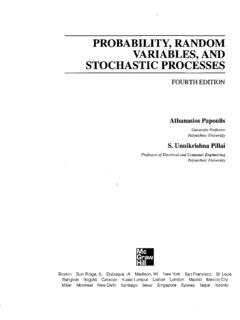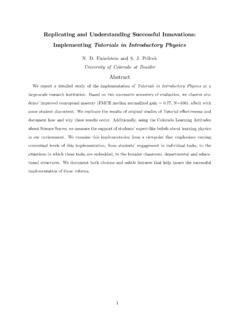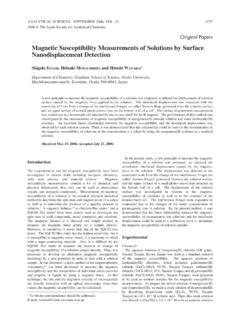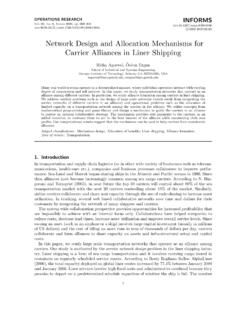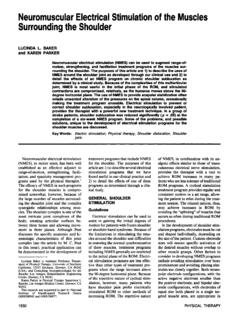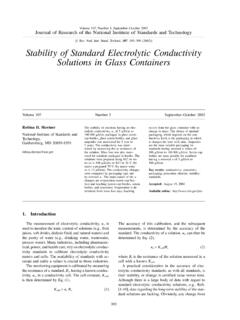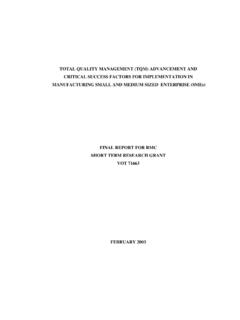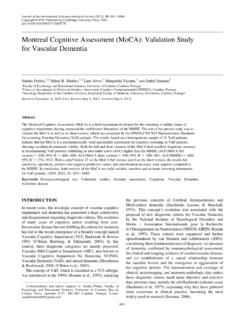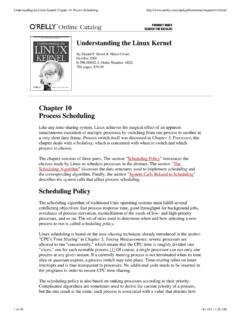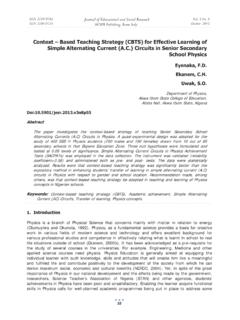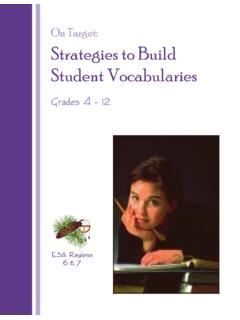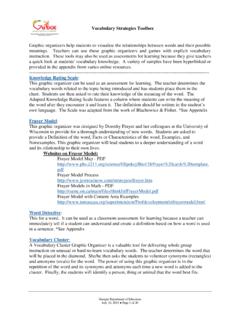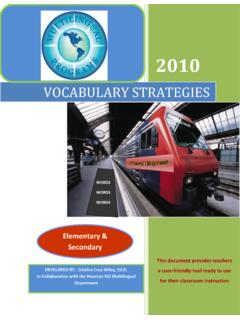Transcription of A Survey on Vocabulary Learning Strategies: A Case of ...
1 A Survey on Vocabulary Learning strategies : a case of Iranian EFL University Students Seyyed Mohammad Reza Amirian Hakim Sab zevari Un iversity, Iran Zahra Heshmatifar Hakim Sab zevari Un iversity, Iran Abstract This study aims at investigating what strategies are more or less common for Learning Vocabulary among EFL university students at Hakim S abzevari University in Iran. A questionnaire adapted from the taxonomy of voca bulary Learning strategies (VLS ) developed by S chmitt (1997) was administered to 74 EFL students (18 males and 56 females).Moreover, semi-structured interviews were also carried out with ten students who completed the written questionnaire to obtain more information about their beliefs and attitudes dealing with Vocabulary Learning strategies .
2 The results revealed the following order of strategy use by the students from the most frequent to the least frequent one: determination (DET), cognitive (COG), memory (MEM), metacognitive (MET), an d social strategies (SOC). In particular, findings indicated that guessing from context and dictionary use strategies were the most popular strategies , while asking the teacher or peers for meaning were rarely used. Index Terms VLS , determination, cognitive, metacognitive, memory, social strategies I. INT RODUCTION Many research studies (Cohen, 2007; Oxford, 2002; Prichard, 2008) have pointed out that language Learning strategies play a very vital role in fore ign language Learning .
3 Oxford (1994) re fers to learn ing strategies as specific actions, behaviors or techniques students use to imp rove their progress in comprehending and producing L2. He notes that these strategies can ma ke Learning easier, faster, more fun, independent, and effic ient. Cohen (2007) speaks of language Learning strategies as some techniques including three factors: action, goal, and situation. Consequently, the word strategy indicates some degree of awa reness on the part of the learner. If fore ign language learners are equipped with strategies such as Vocabulary learn ing strategies , they can be much more successful language learners because Vocabulary Learning strategies make students autonomous and enable them to take responsibility of their own lea rning (Oxford, 1990).
4 As Benson (2001) puts it e xplic it teaching of strategies can help EFL/ESL learners to become more independent learners. Since the late 1970s, there have been many researchers focusing their attention on Vocabulary learn ing strategies as a vital issue among different strategies of language learn ing. Obviously, Learning and using these strategies will lead to Vocabulary development of learners. Additionally, considering Vocabulary instruction as a broad area, the teachers become a ware of their methodology by obtaining an overall pattern of learners Vocabulary lea rning strategies . This research study makes attempt to address the following research questions: 1. What are the most common Vocabulary lea rning strategies used by Iranian college EFL learners?
5 2. What are the least common Vocabulary learn ing strategies used by Iranian college EFL learners? II. BACK GROUND Learn ing Vocabulary is considered as an indispensable part of language Learning and production as limited knowledge of Vocabulary results in learner difficulties in production as well as comp rehension of language. Concerning the comple xity o f this issue, Vocabulary lea rning strategies , as a part of language Learning strategies , seem to be very crucia l in language Learning and consequently being aware of these strategies is important for both teachers and students. Fan (2003) argues that all Vocabulary learn ing strategies consist of five steps: (1) to encounter the word (2) to get a v isual or auditory image of the word.
6 (3) to lea rn the mean ing of the word (4) to ma ke a strong me mory lin k between the forms and the meanings of the words and (5) to use the word. A number of researchers (Gu & Johnson, 1996; O Malley & Chamot 1990; Oxfo rd, 1990; Sch mitt, 2000) have proposed various classifications of Vocabulary lea rning strategies . However, for the purpose of this study, the taxonomy developed by Schmitt (1997) has been used. He proposes two aspects of Vocabulary Learning strategies : discovery strategies and consolidation strategies . Discovery strategies refer to strategies used to uncover the meaning of the words presented to the learner for the first time while consolidation strategies are applied to he lp the learner internalize the mean ing when he/she encounters the word afterwa rds.
7 ISSN 1798-4769 Journal of Language Teaching and Research, Vol. 4, No. 3, pp. 636-641, May 2013 2013 ACADEMY PUBLISHER Manufactured in 2013 ACADEMY PUBLISHERT hese strategies are subdivided into five categories as determination strategies (DET) referring to indiv idual learn ing strategies which help learners to discover the meaning of wo rds by themselves without getting any help fro m their teachers or peers. Social strategies (SOC) which engage learners in interaction with others, me mo ry strategies (MEM) which involve lea rners in learn ing the newly-lea rned word by relating their current or background knowledge with the new word. Cognitive strategies (COG) in wh ich learners are not involved in mental processing rather they are engaged in more mechanica l processing, and metacognitive (MET) strategies which are strategies concerning processes such as decision-ma king, monitoring and evaluating learner's progress.
8 Previous research on Vocabulary learn ing strategies has yielded insightful results. A study conducted by Ahmad (1989) showed that successful undergraduate Sudanese students used dictionary use and note taking strategies as two popular learn ing strategies . The findings of another similar study conducted by Gu and Johnson (1996) on 850 Chinese college students revealed that there was a significant relat ionship between Vocabulary Learning strategies , language profic iency, and Vocabulary breadth. Interestingly, there was a positive correlat ion between lea rners' scores and these strategies : dictionary use, guessing from context, and note-taking. However, they found that visually repeated words had a negative correlation with the size of Vocabulary and general profic iency.
9 Still, in another Survey carried out in Japan by Schmitt (1997) a mong 600 h igh school, college and adult learners, the researcher found that the most frequently used strategies were dictionary use, ora l and written repetition, word spelling, and contextual guessing, whereas semantic map, the key word method, and first language cognates were used less frequently. There was also some ev idence that more proficient learners were inclined to use more co mple x and mean ing-centered strategies than less proficient learners. In another research project, the e ffects of e xp lic it teaching of keyword strategy among 40 students were investigated by La wson and Hogben (1998). The results manifested that most of the learners a re fa milia r with diffe rent strategies of Vocabulary Learning .
10 Moreover, they found that repetition was the most commonly used strategy. Having classified the Vocabulary learn ing strategies in a systematic way, Kudo (1999) cla imed that many strategies were seldo m used. He concluded that the most and the least common Vocabulary lea rning strategies in L2 were rote- Learning and key-word technique, respectively. Fan (2003) also studied 1067 college students in Hong Kong and recognized that they did not make use of key word technique and manage ment strategy while they utilized dictionary and contextual guessing strategies . In a rather recent study, Marin-Marin (2005) e xa mined the utilizat ion of Vocabulary Learning strategies by 150 EFL students at the University of Quintana. It was found that guessing meaning fro m context, using dictionary to check the mean ing and repeating silently we re the most co mmonly used strategies and keeping notes on electric devices, using electric d ictionaries, and recording words on audiotapes were the least commonly used strategies .
